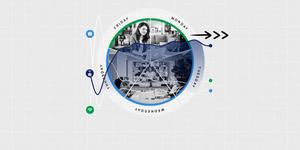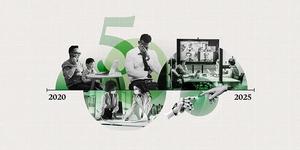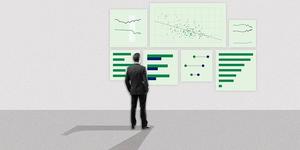Remote Work
Explore Gallup's research.

Build a productive and agile work environment outside the office. Learn how to lead, manage and succeed with remote and hybrid work.

Use of the hybrid work model has leveled off. Its success depends less on company mandates and more on how teams coordinate schedules and build trust.

Remote workers are working fewer hours, but that doesn't mean productivity is falling. Here's how remote work is reshaping output and leadership.

Gen Z prefers hybrid work over fully remote and is more likely than older generations to want employees in the office more often.

COVID-19 created a tectonic shift in how workplaces operate. Gallup research reveals 12 ways the pandemic transformed how great work — and leadership — gets done.

The workplace has not returned to pre-pandemic normalcy, and leadership challenges abound in 2025. But each of these challenges has a solution.

Across work locations, leaders and managers can cultivate a thriving workforce by implementing key practices that put people first.

A new Gallup study reveals four ways to promote successful team collaboration in a hybrid work environment.

Most remote-capable workers now have hybrid flexibility, meaning employers need to make the commute worth it. Learn four elements that draw workers in.

From hybrid work to restructuring, relationships between employees and employers have changed. Here are six of the most important trends leaders should watch in 2024.

U.S. workers report working remotely an average of 3.8 days per month, down from 5.8 in 2020 but higher than the 2.4 measured before the pandemic.

The pandemic gave employees a workplace-altering realization: They could use remote work to avoid the dreaded daily commute.

A new metric reveals how employees want to configure work and life, a preference that can have a big impact on how they are managed in the new workforce.

The pros of remote work come with serious cons: overworked employees and retention risk. Take these steps to give remote workers much-needed downtime.
Is hybrid working? We track percentages of exclusively remote, hybrid and on-site employees and explore their experiences in those work arrangements.

Learn what more than 8,000 remote-capable employees think about returning to the office now and in the future.

Gallup studied the experiences, needs and plans of more than 140,000 U.S. employees—here's what we learned about the future of work.

Learn how building trust and fine-tuning your communication skills can help you meet human needs and improve teamwork in the hybrid workplace.

The people have spoken -- working from home is a priority, even post-pandemic. Are you prepared to handle this new will of the workforce?
